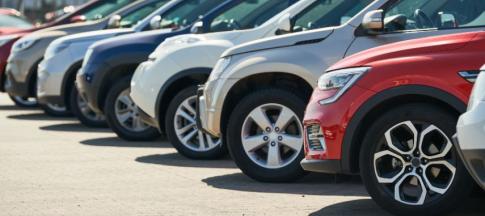
It’s a legal requirement to have car insurance.
However, this doesn’t mean you have to pay over the odds. Everything from your driving style and vehicle choice to your insurance policy and no claims history can impact what you pay.
As insurance experts – we know the most effective ways to reduce your premium. Discover what influences your insurance, why it happens and how to avoid it.
Nine ways to reduce your car insurance
1. Pick a low insurance group model
Cars are categorised by risk and assigned to an insurance group which influences your insurance premium cost. The lower the group, the cheaper the insurance premium.
There are a few factors that influence a car’s insurance group:
- average repair costs
- likelihood of damage
- car value
- performance
- part price
- safety
- security
For example, the higher value your car is, the more expensive it is to fix, therefore increasing your premium cost.
Different versions of the same car can also influence premium cost. A sports version of the same model may be costlier to insure than the estate version, simply because it’s more likely to be driven in a riskier way.
Calculating insurance groups is complex, and a lot of thought, analysis and data go into it. You can find out more about them in our car insurance groups guide.
2. Talk to your insurer
If your situation changes that could change your policy, tell your insurer as it may change your premium cost. This doesn’t always mean you’ll pay more.
For example, if you move home, your new postcode might reduce your risk category and bring your price down.
Sometimes, a quick chat with your insurer means getting you the right policy, which can result in cheaper, better cover.
Find out what you need to tell your insurance company.
3. Protect your no claims bonus
A no claims bonus (NCB) is a discount that’s applied to an insurance policy based on the number of consecutive years you’ve gone without making a claim.
You can build your NCB for up to 15 years and get a significant discount. There are a few different ways to protect your NCB, check out our detailed guide on how to utilise your no claims bonus.
4. Be accurate about your mileage
Mileage can impact your insurance premium, so don’t overestimate how many miles you drive when disclosing this to your insurer.
If you drive significantly fewer miles than stated, but don’t tell your insurer, you won’t benefit from a potentially lower premium cost.
On the other hand, you must be honest and update your policy if you’re likely to drive more than your stated amount. Not telling your insurer can invalidate your insurance.
5. Pick the right cover
Insurers often offer multiple tiers to give you options for your circumstances and budget.
Avoid paying for cover you’re not using by reading over each tier option. If in doubt, call your insurer to check which cover level is right for you.
6. Pay annually
Most monthly car insurance premiums include interest in the price, making them more expensive than annual costs.
If you can afford to, paying annually is cheaper.
7. Increase your voluntary excess
Choosing higher excess will reduce your car insurance premium. However, make sure you can pay this excess if you need to repair your motor when claiming.
8. Take security seriously
Car thefts are unfortunately common, and thefts will impact your car insurance down the line.
Although many insurers, including us, don’t offer discounts for investing in extra car security, using security devices can help secure your car and give you peace of mind.
Read our guide on how to prevent car theft.
9. Try telematics
Telematics can help drive down your insurance premium. The most well-known telematics device is a black box, but others exist.
Instead of estimating, telematics devices give real data that impacts your insurance premium. By sticking to a speed or mileage limit, you can bring down your payment.
If you’re confused about reducing your car insurance premium with these devices, then learn about what telematics is.
Is multicar insurance cheaper?
If you’re looking for cheaper car insurance and have more than one car you need to cover, consider getting MultiCar insurance.
We offer a discount for combining multiple vehicle policies, so you could save money by insuring them together.
Is multicover insurance cheaper?
MultiCover insurance is for people who want to insure different things on the same policy – for instance, your home and your car.
Most insurers, including us, offer a discount for combining insurance policies.
You can’t control every factor
There are factors that can influence your premium that are out of your control.
For example, on average, women typically pay less for their car insurance than men. Insurers don’t discriminate or adjust prices based on gender, but female drivers generally have fewer accidents and make fewer high value claims, which means they typically have lower premiums.
Other factors like occupation, location and age can influence your premium. It’s important to keep this in mind when figuring out how to reduce your car insurance cost.


